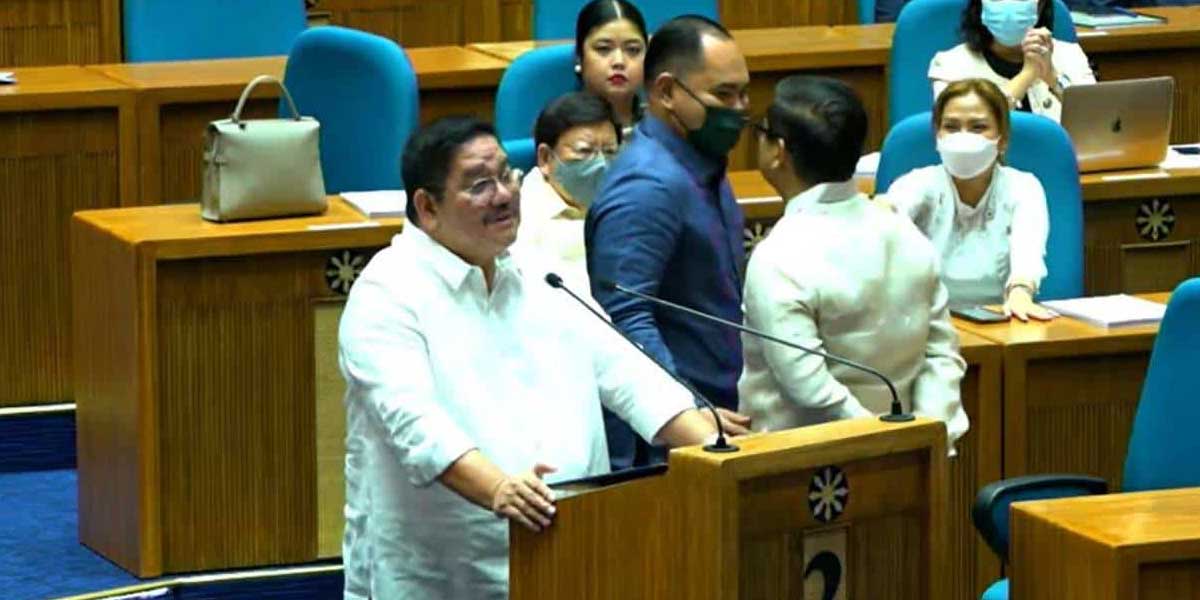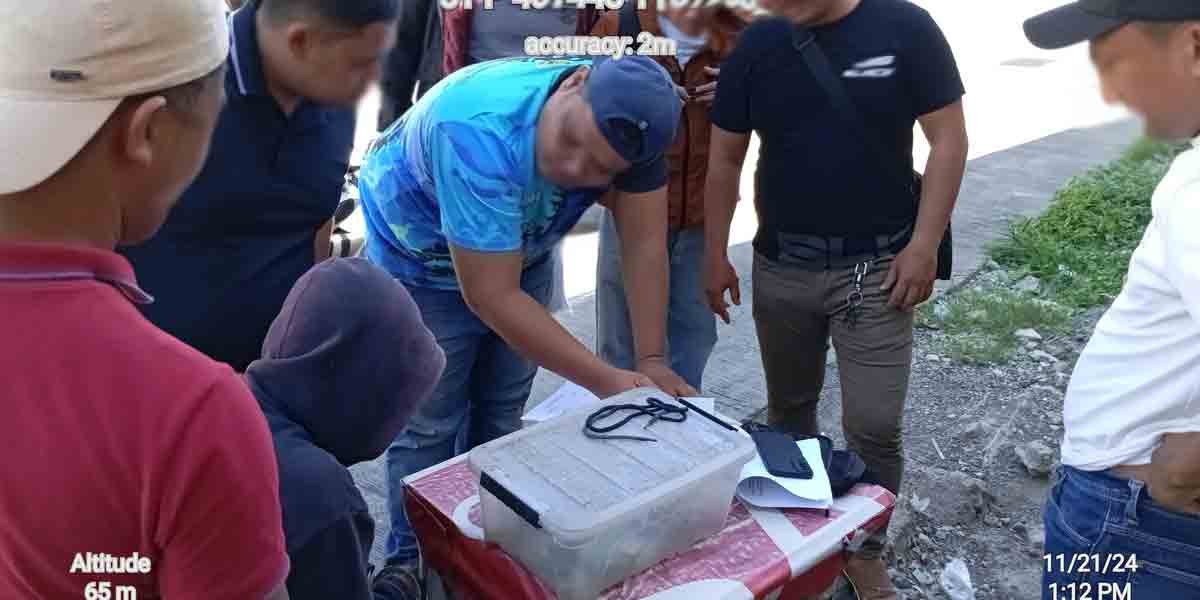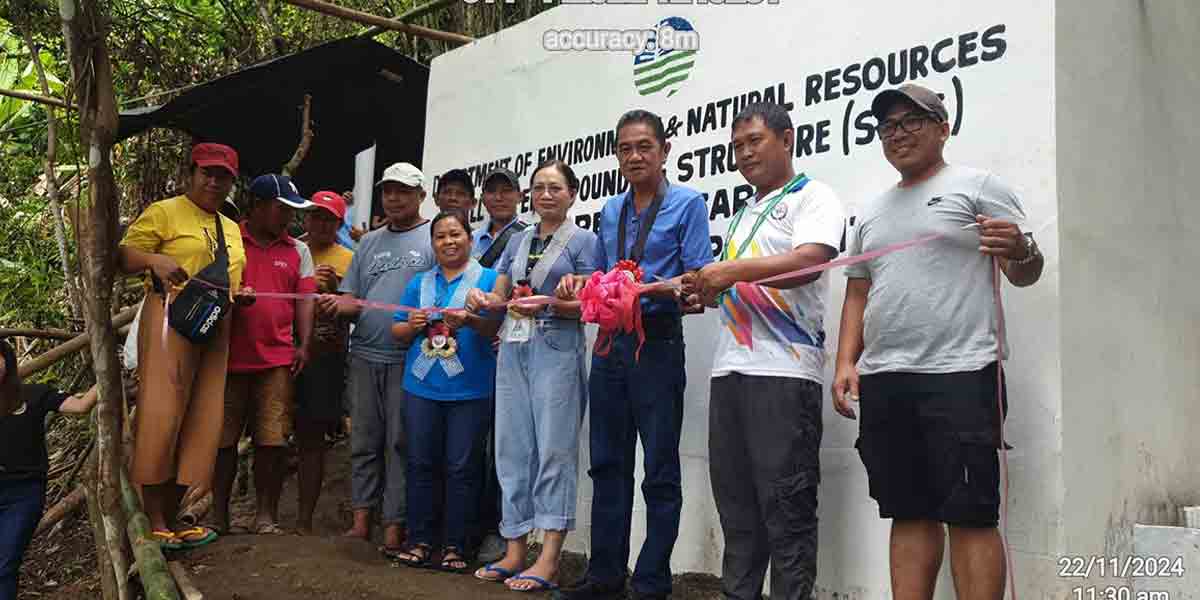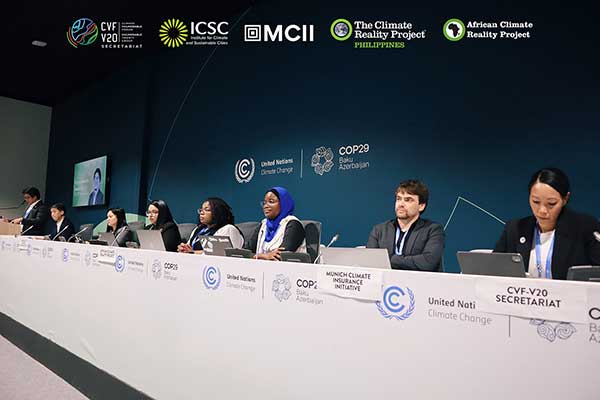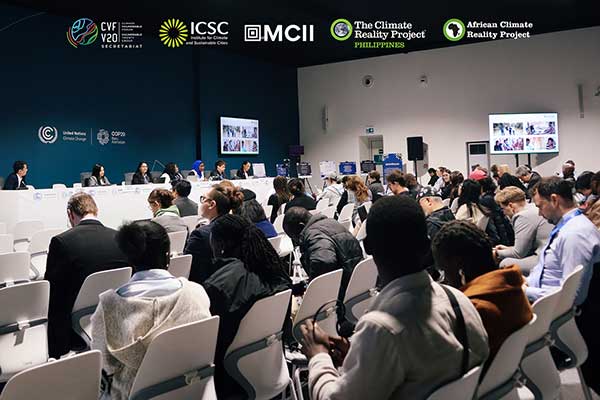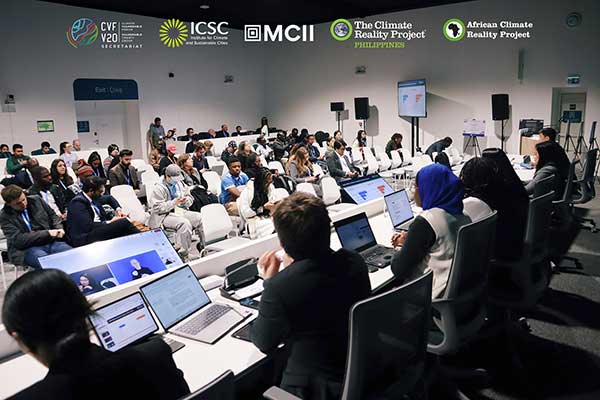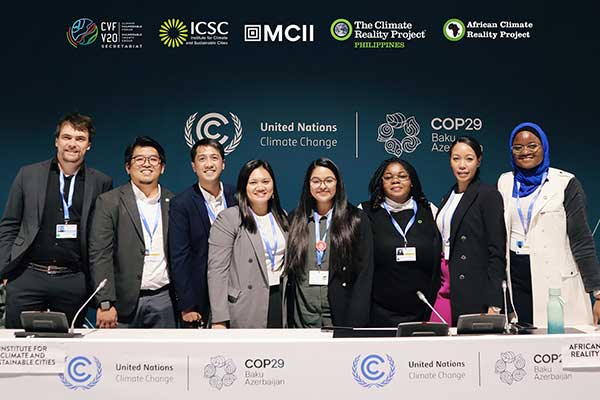BAKU, 22 November 2024 –– The 29th Conference of Parties of the United Nations Framework Convention on Climate Change (COP29) concluded on Nov 22, and as negotiations progressed to agree on a New Collective Quantified Goal (NCQG) on Climate Finance in the past two weeks, experts from civil society from the Philippines, Ghana, and South Africa emphasized the need for accountability from both donor and recipient countries to effectively address challenges in mobilizing climate finance.
“It is everyone’s responsibility to take part in ways of improving the systems that can support a full realization of an accountability approach that holds developed countries in delivering their pledges through the right modalities, and our very own governments in utilizing climate finance correctly and equitably,” said Angelo Kairos dela Cruz, Executive Director of the Philippine-based Institute for Climate and Sustainable Cities (ICSC), in a COP29 side event on November 16.
Unveiling The Money Trail: Climate Finance Accountability Through Local Tracking and Validation is an official UNFCCC side event led by ICSC at the COP, in collaboration with the Munich Climate Insurance Initiative (MCII), The Climate Reality Project Philippines, African Climate Reality Project, and the Climate Vulnerable Forum (CVF), which highlighted climate finance tracking initiatives in the Philippines, Ghana, and South Africa.
“Finance for climate action is far from enough but they are not completely absent. For years, developed and contributing countries, even multilateral development banks (MDBs) have been reporting their climate and climate-related financing for developing countries. However, the reporting system is so source-driven that there is no way to ascertain how much these streams actually and truly contribute to the country’s climate ambitions and plans,” added dela Cruz.
Citing a report by the Independent High-Level Expert Group on Climate Finance, Christian Soqueño, Energy Program Lead of The Climate Reality Project Philippines, highlighted that an upwards of USD 2 trillion is needed by climate-vulnerable countries to address climate change impacts. “A major challenge is that current climate finance flows often fund projects that do not align with the communities’ specific adaptation and mitigation needs. This critical mismatch must be addressed,” he added.
Tracking finance from international sources flowing to the Philippines
ICSC Director for Climate Policy Danica Marie Supnet presented the Climate Finance
Accountability Initiative (CFAI), following the Adaptation Finance Accountability Initiative (AFAI) established by ICSC almost ten years ago, which tracked international climate finance-tagged commitments and disbursements to the Philippines using information from the Organisation for Economic Co-operation and Development (OECD).
As of November 2023, total finance committed to the Philippines amounted to over USD 11 billion from 2010 to 2022, with commitments of over USD 5.4 billion for mitigation and over USD 5.5 billion for adaptation. However, in terms of disbursement, approximately USD 1.6 billion has been disbursed for mitigation, while over USD 2.6 billion has been disbursed for adaptation, amounting to only 38 percent disbursement rate or approximately USD 4.2 billion. In addition, ICSC also looked at specific indicators such as sectoral disbursement allocation; sources of finance, both multilateral and bilateral; and forms of finance flows, such as loans and grants.
However, Supnet pointed out that these indicators are still very limited, as information on beneficiaries, details of the funds’ purpose, and implementation plan are not provided by the OECD, emphasizing the importance of country-level tracking and validation of climate finance flows.
“While there are limits to the information and tracking process, it can be a good starting point to build country-specific cases on climate finance accountability. The climate crisis does not stop in setting a specific goal. Climate finance tracking can contribute to national discussions of what should be accounted for as climate finance, how much investment is needed to further advance national climate targets, and how to account for climate finance impacts at national and community levels,” Supnet said.
Emphasizing the need for grant-based financing for South Africa and Ghana
The cases of South Africa and Ghana were jointly presented by representatives of the
African Climate Reality Project: Branch Manager Aurelie Kalenga Njimngou, Senior
Campaigner and Coordinator Courtney Morgan, and West Africa Hub Coordinator Nana
Mariam Yussif. Both case studies for Africa tracked finance coming from Official
Development Assistance (ODA) grants and loans, equity investments, private development finance, and other official flows.
In South Africa, most of the committed (over USD 505 million) and disbursed (over USD 504 million) adaptation funds are loan-based. In terms of mitigation, the majority of commitments (over USD 3 billion) come from other official flows, while disbursements amounting to approximately USD 1.3 billion are still mostly loans. Mitigation funding is higher, as there is a massive push to decarbonize the country’s energy sector.
“It is concerning to see how much of the funds are loan-based, as loans have the potential to lock developing countries into debt,” said Njimngou.
In contrast, the majority of committed (over USD 500 million) and disbursed (over USD 400 million) adaptation funding for Ghana is in the form of ODA grants, however, there is still a significant amount of committed ODA loans, amounting to almost USD 300 million. Committed financing for mitigation, on the other hand, is still mostly loans (USD 660 million), followed by grants (USD 612 million).
“The case of Ghana presents a positive situation, as it suggests greater emphasis for grants over loans, alleviating debt pressure for countries and allowing them to focus on climate action,” Morgan said.
“Assessing the impacts of financing in local communities is very essential, because we need to ensure that no one is left behind. To promote climate justice, we also need social justice,” said Yussif, as she presented forest management efforts in the Worobong South Forest Reserve in Ghana.
Moving forward: Accelerating finance to protect climate vulnerable countries
“This event highlighted the importance of local and national level validation. We often look at committed amounts, and we have to be reminded that the disbursement and utilization of funds are also crucial. The cases of the Philippines, South Africa, and Ghana show us that both the quantity of climate finance and quality of impact are important,” said MCII Executive Director Soenke Kreft.
Kreft also shared the organization’s work on the Multi-Actor Partnership (MAP) on Climate and Disaster Risk Finance and Insurance (CDRFI), citing the importance of financial protection mechanisms such as CDRFI in guarding climate vulnerable nations and communities from the risks and impacts of climate change. “We often look at projects when discussing traditional climate finance, but through CDRFI, it is not only about project-based approaches, but also setting up triggers and enabling sectors and communities to quickly act in response to disasters and other climate impacts,” Kreft added.
Geneva Georgina Laurel Oliverie, Deputy Director for International Finance Reform and Trade, of the Secretariat of the CVF and Vulnerable 20 (V20) Group of Finance Ministers stressed the need to scale up direct access to climate finance.
“Climate finance is about ensuring that the right funding gets to the most vulnerable nations. Encouraging direct access is critical, and this will require transparency and accountability, as we want developed countries to fulfill their promises, while it is also critical to see how we can address the gaps from our end,” said Oliverie, representing the 70 nations on the frontlines of the climate crisis. (Photos: Lemuel Cruz/The Climate Reality Project Philippines)


